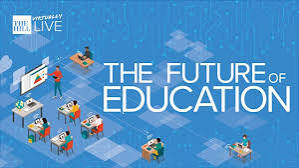The Rise of Online Learning: Is Traditional Education Becoming Obsolete?

In the last decade, online learning has experienced explosive growth, transforming the way people access education. With the rise of e-learning platforms, virtual classrooms, and digital certifications, many are questioning whether traditional education is becoming obsolete.
While online education offers flexibility, affordability, and accessibility, traditional institutions still provide structured learning, hands-on experiences, and social interaction. So, is traditional education on its way out, or will it adapt to the digital age? Let’s explore the pros, cons, and future of both learning models.
1. The Growth of Online Learning
The shift toward online education has accelerated due to technological advancements, globalization, and the COVID-19 pandemic, which forced institutions to adopt digital learning solutions.
Key Statistics
- The global e-learning market is projected to reach $400 billion by 2027.
- Over 50% of students worldwide have taken at least one online course.
- Platforms like Coursera, Udemy, and Khan Academy have enrolled millions of learners in diverse fields.
Factors Driving Online Education Growth
✅ Convenience & Flexibility – Learn anytime, anywhere, at your own pace.
✅ Lower Costs – Online courses are often cheaper than traditional degrees.
✅ Diverse Course Offerings – Access to thousands of subjects and instructors globally.
✅ Technology Integration – AI-powered learning, VR classrooms, and interactive content enhance engagement.
2. Advantages of Online Learning
A. Accessibility for All
- Online learning breaks down barriers, allowing students from remote areas or those with disabilities to access quality education.
- Lifelong learning is now possible for professionals and individuals with busy schedules.
B. Cost-Effective Education
- Traditional degrees can cost tens of thousands of dollars, while online courses are often affordable or free.
- Eliminates costs related to transportation, housing, and textbooks.
C. Personalized & Self-Paced Learning
- Students can choose courses based on their interests and learn at their own speed.
- AI-driven platforms provide adaptive learning, tailoring content to individual progress.
D. Career Advancement & Skill Development
- Online certifications in high-demand fields (e.g., data science, coding, digital marketing) are recognized by employers.
- Enables professionals to upskill without quitting their jobs.
3. Limitations of Online Learning
While online education offers numerous benefits, it cannot fully replace traditional learning in some areas.
A. Lack of Hands-On Experience
- Fields like medicine, engineering, and lab sciences require physical practice and real-world training.
- Virtual simulations can help but do not fully replicate in-person experiences.
B. Less Social Interaction & Networking
- Students miss out on face-to-face collaboration, group projects, and campus life.
- Networking opportunities with professors and peers are more limited than in traditional settings.
C. Self-Discipline Challenges
- Many students struggle with motivation and time management without a structured classroom environment.
- High dropout rates in online courses suggest some learners need external accountability.
D. Employer Perception
- While attitudes are changing, some employers still favor traditional degrees over online certifications.
- Not all online programs are accredited or recognized globally.
4. The Role of Traditional Education in the Digital Age
Despite the rise of online learning, traditional education remains relevant due to its unique advantages.
A. Structured Learning & Accreditation
- Universities offer comprehensive curriculums designed to build in-depth expertise.
- Accredited degrees from prestigious institutions still hold significant value in the job market.
B. In-Person Learning Benefits
- Hands-on labs, workshops, and internships provide practical training.
- Interactive discussions, debates, and teamwork foster critical thinking and collaboration.
C. Campus Experience & Social Development
- College life teaches interpersonal skills, independence, and networking.
- Exposure to diverse cultures and ideas enhances personal growth.
5. The Future: A Hybrid Model of Education
Instead of replacing traditional education, online learning is reshaping it. The future will likely involve a hybrid learning model, combining the best of both worlds.
A. Blended Learning Approaches
- Universities integrating online courses into their curriculums.
- Hybrid degree programs with both online and in-person components.
B. Virtual Reality (VR) & Augmented Reality (AR) in Education
- VR classrooms will provide immersive learning experiences.
- AR simulations will enhance practical training in medicine, engineering, and science.
C. Increased Corporate Partnerships & Alternative Credentials
- Employers will recognize skill-based certifications from platforms like Coursera, Google, and LinkedIn Learning.
- Traditional universities will offer micro-degrees and specialized online programs.
6. Conclusion: Will Traditional Education Become Obsolete?
No, traditional education is not becoming obsolete, but it is evolving. While online learning provides unmatched flexibility and accessibility, traditional institutions still offer structured education, practical training, and social development.
The future of learning will likely be hybrid, blending online convenience with in-person engagement. Rather than choosing one over the other, students and professionals can leverage both to maximize their educational opportunities.
Final Thought:
Online learning is not a replacement—it’s a revolution. The key to success in the digital age is adapting and embracing the best of both worlds.



